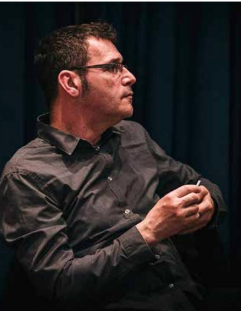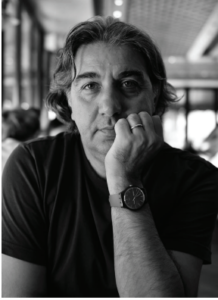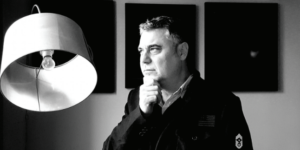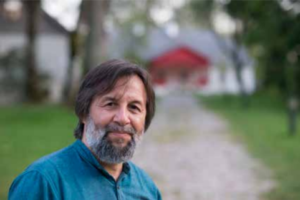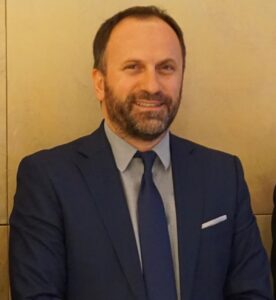Vladimir Arsenijević (b. 1965 in Pula, Croatia, SFR Yugoslavia) is an awarded and internationally acclaimed Serbian writer, translator, editor and publicist. He won the
1994 NIN-award for his first novel In the Hold (U potpalublju) thus becoming the youngest ever recipient of this prestigious prize. This was the very first debut book ever
rewarded with this prize. This anti-war book was soon translated into 20 languages and placed Arsenijević almost instantly among the most translated Serbian writers ever. Since
then, Arsenijević published seven other novels, graphic novels and books of essays. He is the founder and president of Association KROKODIL.We are publishing here
almost integrally his text of introduction to this year’s edition of the homonimous literary festival.
We owe the title to one of the books of the recently deceased American author and essayist Joan Didion, whose insight into the roads travelled by the human species through the XX and XXI centuries, and her memorable descriptions of societal unrest and psychological fragmentation, have left an important mark on the way we experience the contemporary world. It directs our attention towards the collective, global, extremely complex trauma the population of planet Earth is facing today. In a direct head-on collision with the certainty of environmental apocalypse, new and mysterious pandemics, aggressive, bloodthirsty dictators with their fingers on the triggers of nuclear weapons powerful enough to destroy all of humanity, and the extreme stupidity and blindness of the human species that, due to the development of communications technologies, has been unveiled before us in all its splendour while as Arthur Koestler said, we “sleepwalk toward Armageddon”, it would seem we are unable to fully comprehend where we have led our civilization. And in return, where our civilization has led us.
If we zoom in further to have a better look at our tiny part of the planet, the by now proverbially depressing south east of Europe or western Balkans, however you like it, things will seem even bleaker. Faced with the debilitating rule of stabilocrats and identity-peddlers followed by the overbearing shadow of an enormous tidal wave of retrograde right-wing sentiment and native ur-fascism that literally springs from the ground all around us, we face the fatalistic idea that some phenomena are so deeply rooted here that any fundamental change will be a matter of arduous decades and probably centuries of work with a highly uncertain outcome. To make things worse, this work has not even properly started, and when will it be – we don’t know. It is with increasing frequency, therefore, that we give in to the thought that the easiest, and perhaps smartest route would be to give up on everything or simply raise our eyes to the heavens and hope for the best. I.e., to think magically.

